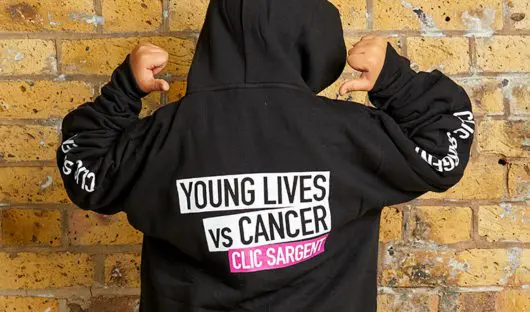Emotions when you’re living with a terminal illness
If a time comes when the aim of your treatment is no longer to cure you, how do you even start to deal with that news? It’s normal to feel angry, shocked, panicked, frightened, vulnerable, numb, or totally overwhelmed with emotions.
There’s no right or wrong way to deal with this. Everyone has different ways of coping day to day. You might decide to accept the prognosis and make the most of your life, focusing on the things you want to do and achieve – maybe to make a bucket list and plan with people you love. You might want to just carry on living your normal life as far as you can and not think about it too much. Maybe you feel that you can’t accept the diagnosis and want to explore other options. Or you might feel as though you just can’t cope at all.
It might be a combination of all these things from one day to the next. It depends on you – your personality and your situation. There really is no right or wrong way to feel or deal but you do not have to go through it alone.
Handling emotions
Getting bad news about your illness can be a frightening experience. You’re bound to feel lots of uncertainty knowing that your cancer is terminal and might have questions like when and how your body will change, the effect it will have on your relationships and exactly how much time you have left. Not having answers can be frustrating and upsetting.
Breaking down these big unanswerable questions and thinking about things in smaller chunks can help everything to feel more manageable and less overwhelming. Take it a step at a time and make small goals for yourself. You can still tackle bigger issues but you don’t need to think about or do everything at once.
How you feel about what’s happening could veer from one emotion to another, day to day, or even minute to minute. When you first hear bad news, it could feel very distressing and scary. After that, you could feel angry, frustrated, lonely, guilty, or in denial about what’s happening.
You’ll need some time to find your feet. You will adapt to the situation and often those intense feelings will get less overwhelming over time. That’s not to say you won’t have bad days but the devastation you feel at first will lift. You’ll find that the really crap bits will go alongside moments of happiness, positivity and laughter too. Just take it one step at a time.
The thing about staying ‘hopeful’ or ‘positive’
Being hopeful doesn’t mean living in denial. Hope is an important part of the human condition. You can accept that your cancer isn’t curable and still have hope. It’s about redirecting it. If you hope to visit somewhere you’ve always wanted to go, contact an organisation who could help you make this a reality. If you hope that you’re able to do the stuff you enjoy for as long as possible, make a plan with your team and palliative specialists.
That being said, it’s important to find a balance. The people in your life might be willing you to ‘keep fighting’ or to not let it ‘beat you’. Although it’s probably coming from a place of love, it can be really difficult and make you feel guilty. Or maybe you’re putting pressure on yourself. It’s important to realise that this ‘battle’ narrative is not always a helpful one. There’s nothing wrong with accepting your prognosis – by admitting that your cancer is terminal, it doesn’t mean that you’ve lost, failed or are giving up.
You can still go forward with positivity and hope.
You could view it as a new chapter, or an opportunity to live life to the maximum. You could focus on having special time with the people you love. Some people find it empowering to take the initiative and plan for the end of their life or funeral.
It can help to talk to someone about how you feel – someone from your care team might be able to lend a listening ear so that you can vent and get everything out.
Opening up to people
You might feel that nobody else could possibly understand what you’re living with. Even the people closest to you might not get it at times, and that can be really frustrating. Try to be patient and open with them. Often a bit of clear direction can make all the difference.
If you or they are finding it hard to talk about it, you might want to talk to someone less close to you, like a counsellor or your Young Lives vs Cancer Social Worker if you have one. Your doctor or nurse can help you find a counsellor, or you can search for counselling services in your area.
Talking to other people who are in a similar situation and hearing how they cope with their feelings can open up valuable support and friendships. Your doctor or nurse might know about local support groups for people who are living with a life-limiting illness, or for people who have the same condition as you. Shine Cancer Support offers an online programme for young people living with incurable cancer that you may find useful.
Or if you’re not ready to chat directly to other people, Healthtalk.org has videos and written interviews of people talking about their feelings when told they had a life-limiting illness.
Try these articles for help with talking and relationships with a terminal diagnosis:
- Five steps for taking control and making a plan when you have terminal cancer
- How do I talk to my parents about my terminal cancer?
- How will my siblings dealing with my terminal diagnosis?
- How a terminal diagnosis can affect your relationship
When and how to get extra help
If you have prolonged, intense feelings that start interfering with day to day life then be aware that these could be signs of depression and anxiety. Look out for these signs:
- sadness or crying all the time
- feeling irritable or frustrated
- not being able to enjoy anything
- change in sleep routine
- change in weight
- loss of energy or a lack of interest in anything
- trouble making decisions
- lack of concentration
- change in eating habits
- feeling helpless or worthless
- recurring thoughts of death or suicide.
It can be hard to tell if these experiences are a natural response to your illness, or depression. Either way, it’s always good to share this with someone. Talk to your doctor or nurse – they could adjust medical treatments to make symptoms more manageable in case they’re having an effect on your mental health.
They could also help you find other therapies like counselling, cognitive behavioural therapy (CBT), complementary therapy or support groups. Talking therapies in particular can help if you’re finding it difficult to share your thoughts and feelings with your family or partner.

